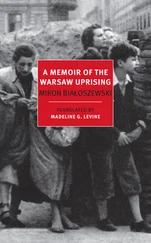When tears came, she faced the window again, afraid to see my reaction.
‘What about this house scares you?’ I asked.
For a long time, she made no reply. I took out my pipe and examined the bowl to keep from looking at her and making her more uncomfortable.
‘I often think someone is hiding underneath my bed at night,’ she finally told me. ‘Or in my wardrobe, or in the dining room – a person who wants to kill me. I check everywhere I can think of, but it’s too big a house to be sure I haven’t missed something – or that the killer isn’t one step ahead of me.’
A knock on the door startled me. ‘Your coffee, Dr Cohen,’ a woman called out.
I asked Irene to excuse me a moment. Opening the door a crack, I saw an elderly maidservant walking away. On the floor was a wooden tray on which she’d placed an elegant porcelain coffee pot – white, with a black handle – and a matching cup. I carried the tray inside and put it on the girl’s bed.
‘Irene, this is a mansion, and it must have lots of hidden corners and passageways,’ I told her as I poured a first cup. ‘Our deepest fears tend to hide where we have trouble finding them. But I’m going to help you find them.’
She nodded her thanks, but guilt entered deeply into me; who could say if I’d ever come here again? I stole a look at my watch. It was 2.20. I wondered where Rowy and Ziv were at that moment. I decided to stay with Irene until three.
I took a first sip of coffee, but its dark flavour was so redolent of better times that I wasn’t sure I ought to drink it.
‘How long have you lived here?’ I asked the girl.
‘Four months.’ She looked far into the distance out her window. ‘Sometimes I imagine that the killer is outside the house and… and trying to get in any way he can,’ she told me cautiously, and with the effort of recall, as though groping her way through memory. ‘I start worrying that my parents might have left the front door open, which would allow him to get inside, so I check that it’s locked before going to my room. And I end up coming downstairs several times in the night to make sure it’s still locked.’
‘Do you think your parents might leave the door open on purpose – or unlock it after you’ve locked it?’
Those were risky questions, since they touched on her relationship with her parents. Irene faced me and held my gaze, wanting to see the kind of man who would ask them – above all, whether I would give up on her if she spoke to me honestly and revealed something of which other people might disapprove. So I looked at her hard and long. It was an important moment – the hub around which our subsequent conversation would turn. She didn’t flinch or even blink. I began to believe she was a courageous girl.
‘Please tell me what you’re thinking,’ I prodded.
‘I never before imagined that the door…’ She raised a hand over her mouth, assaulted by fear. At length, she said, ‘I love my parents. I want you to know that.’
And yet one or both of them is threatening to hurt you , I thought.
‘I believe you,’ I told her, ‘but it’s hard to trust even the people we love most when we find ourselves in a new environment. I learned that when I moved into the ghetto.’
She started; she hadn’t expected me to talk about my own life. Drawing her knees into her chest and hugging them, she asked, ‘Is it… is it very bad in there?’
‘Yes, it’s bad, but there’s nothing any of us can do about it at the moment.’
‘No, maybe there is,’ she declared.
‘What do you mean?’
‘We can each play our part in preventing worse things from happening.’
I was impressed by her solidarity, but at the time she seemed hopelessly naive.
‘Maybe so,’ I told her. ‘But we need to talk about you for the moment. Now, Irene, can you tell me what the murderer looks like in your imagination?’
‘I’m not sure. I don’t recognize him, if that’s what you mean. But I sometimes see he has an awful face, and he looks at me in a dreadful way.’
A sense of déjà vu made me halt as I reached for my coffee cup. Where had I heard her last words?
‘What makes his look so dreadful?’ I asked.
‘Something in his eyes – something dark and purposeful,’ she replied, moaning, and she began twisting the hair on top of her head.
‘And do you have any idea why he would want to kill you?’
‘No, I don’t know!’ she replied in desperation. Taking a deep breath, she tugged out the tangle of hairs she’d twisted around her index finger.
I grimaced, but she said reassuringly, as if I were the one in pain, ‘It’s all right, Dr Cohen, it doesn’t really hurt. And even if it does, it’s a good kind of pain.’
‘Why is it good?’
‘I’m not sure. I only know it is.’
‘Because you’re the one causing it?’ I asked, hoping I’d come near the truth; I needed to build up her confidence in me if I was going to help her.
She thought about my theory. ‘Maybe you’re right,’ she told me, but she didn’t sound convinced.
To my subsequent questions, Irene went on to tell me that the killer wasn’t interested in robbing her. She pictured him stabbing her in the heart. She would bleed to death.
‘When did you start believing your life was in danger?’ I asked.
‘Maybe a couple of weeks ago.’
‘Did something unusual happen then?’
‘What do you mean?’
‘Did you get ill? Or did you have a quarrel with your mother or father? Maybe it was something that you-’
‘My father is dead to me!’ she interrupted roughly, probably hoping to shock me; perhaps my questions about the timing of her troubles were too threatening, and she wanted to push me away.
‘Dead to you, how?’
‘He’s never wanted anything to do with me.’
‘I don’t understand. I thought you lived here with your-’
‘Rolf Lanik is my stepfather,’ she cut in. ‘My father is a radiologist named Werner Koch. He lives in Switzerland, though he visited us here in Poland – once, two months ago.’
‘How long has your mother been married to your stepfather?’
‘Let’s see, I was six, so that makes… eleven years. He’s a good man. In fact, Rolf is the best thing that ever happened to me.’
She spoke as though I’d obliged her to defend his honour, which led me to believe he might have been her tormentor, though he might not have been aware of the damage he was doing.
‘Why is he so good for you?’ I asked.
‘Because he gets us whatever we need. And I’m in an excellent school for foreigners. He’s kind and generous, and he loves us – me and my mother.’
‘And yet he’s made you move to a house that you hate.’
‘That’s not his fault, Dr Cohen! Or do you think it is?’ she snapped.
I was glad that she felt secure enough to reveal her anger. ‘I’m not in a position to say,’ I told her. ‘But tell me, what does your mother think of your new surroundings?’
‘Mama? She loves it here,’ the girl replied resentfully. ‘She certainly doesn’t say otherwise.’
Irene seemed to have concluded that her mother valued their new house – and her husband – more than her daughter.
Sensing that her father’s sudden appearance two months earlier might have touched off Irene’s current problems, I returned to her mother’s first marriage. The girl told me that it had ended in divorce after six years. She had been four when her parents separated. Her mother had lost everything, and had started a new life in Zurich, where they had relatives. She’d found work as a barmaid in a small hotel.
‘Ah, so that explains your Swiss accent,’ I observed.
Sticking out her tongue and groaning, Irene replied, ‘So you noticed.’
Читать дальше












